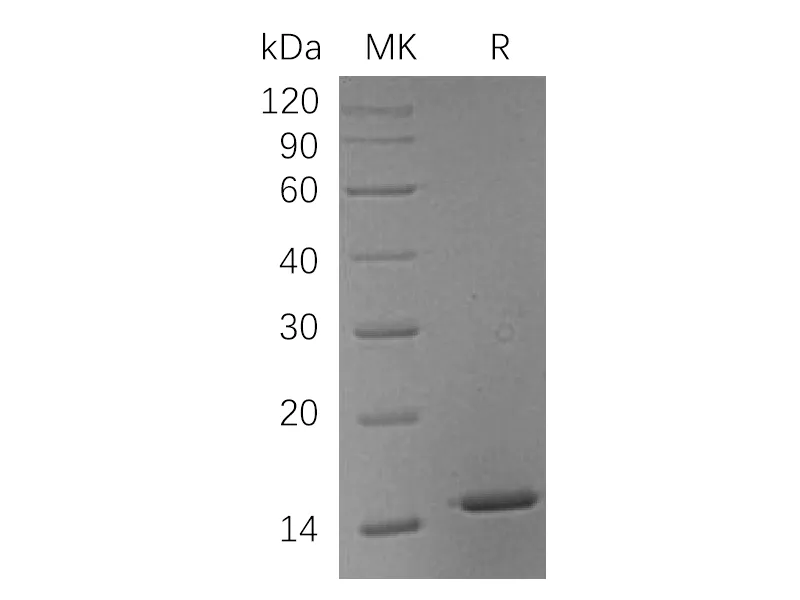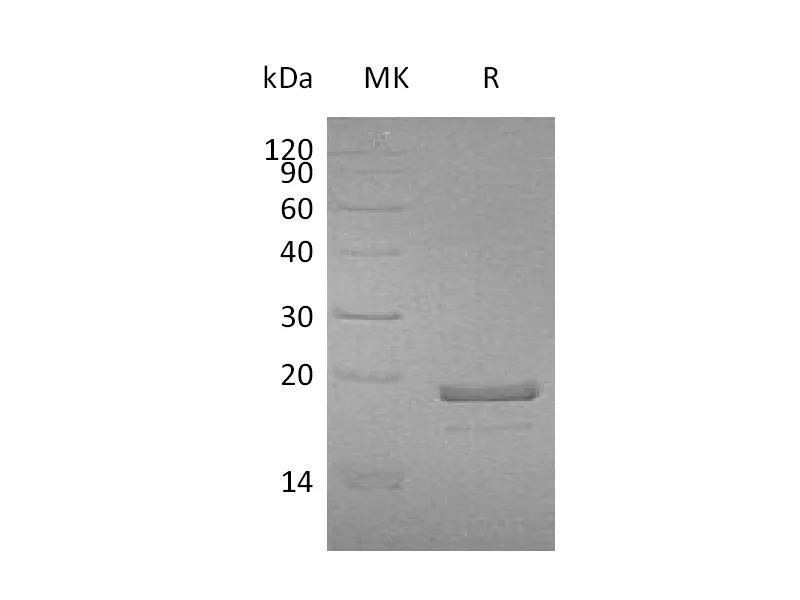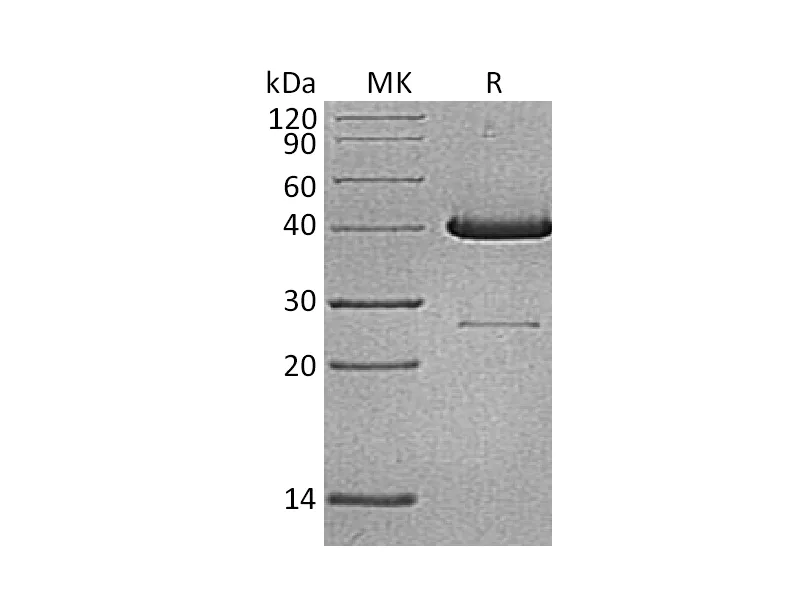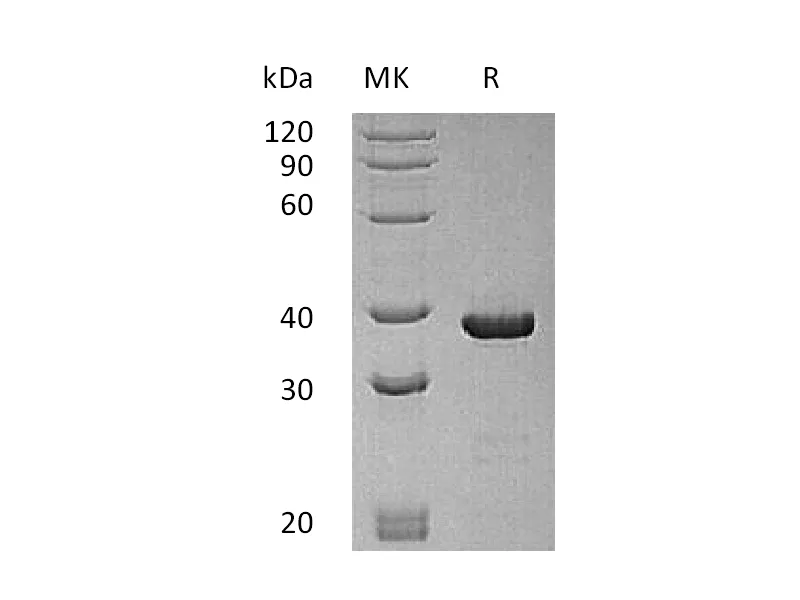| 产品名称 |
Recombinant Cynomolgus PD-L1 (C-6His) |
| 英文名称 |
PD-L1/B7-H1/CD274/Programmed Cell Death 1 Ligand 1 |
| 纯度 |
Greater than 95% as determined by reducing SDS-PAGE |
| 内毒素 |
<1 EU/µg as determined by LAL test. |
| 蛋白构建 |
Recombinant Cynomolgus Programmed Cell Death 1 Ligand 1 is produced by our Mammalian expression system and the target gene encoding Phe19-Thr239 is expressed with a 6His tag at the C-terminus. |
| Accession |
G7PSE7 |
| 表达宿主 |
Human Cells |
| 种属 |
Cynomolgus |
| 预测分子量 |
27.1 KDa |
| 制剂 |
Lyophilized from a 0.2 μm filtered solution of PBS, pH 7.4. |
| 运输方式 |
The product is shipped at ambient temperature.Upon receipt, store it immediately at the temperature listed below. |
| 稳定性&储存 |
Store at ≤-70°C, stable for 6 months after receipt.Store at ≤-70°C, stable for 3 months under sterile conditions after opening. Please minimize freeze-thaw cycles. |
| 复溶 |
Always centrifuge tubes before opening.Do not mix by vortex or pipetting.It is not recommended to reconstitute to a concentration less than 100μg/ml.Dissolve the lyophilized protein in distilled water.Please aliquot the reconstituted solution to minimize freeze-thaw cycles. |
| 分子别名 |
| B7-H; B7H1; B7-H1; B7H1PDCD1L1; CD274 antigenMGC142294; CD274 molecule; CD274; PDCD1L1; PDCD1LG1; PDL1; PD-L1; PD-L1B7 homolog 1; PDL1PDCD1 ligand 1; programmed cell death 1 ligand 1; Programmed death ligand 1 |
| 背景介绍 |
| CD274, also known as B7-H1 or programmed death ligand 1 (PD-L1), is a 40 kD type I transmembrane protein and a member of the B7 family within the immunoglobulin receptor superfamily. Programmed death-1 ligand-1 (PD-L1, CD274, B7-H1) has been identified as the ligand for the immunoinhibitory receptor programmed death-1(PD1/PDCD1) and has been demonstrated to play a role in the regulation of immune responses and peripheral tolerance. By binding to PD1 on activated T-cells and B-cells, PD-L1 may inhibit ongoing T-cell responses by inducing apoptosis and arresting cell-cycle progression. Accordingly, it leads to growth of immunogenic tumor growth by increasing apoptosis of antigen specific T cells and may contribute to immune evasion by cancers. PD-L1 thus is regarded as promising therapeutic target for human autoimmune disease and malignant cancers. |
注意事项
本司产品仅用于科研,不用于临床诊断和治疗




